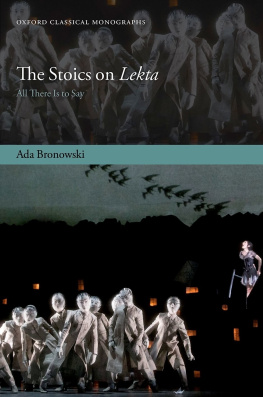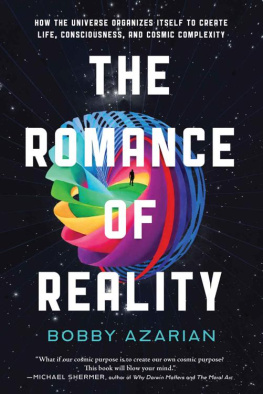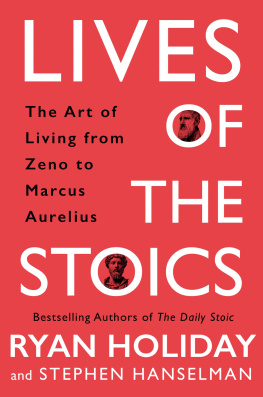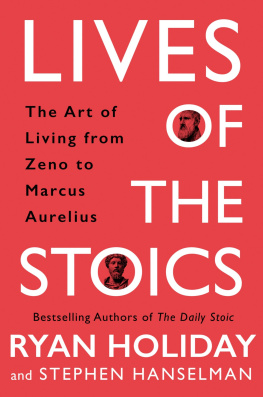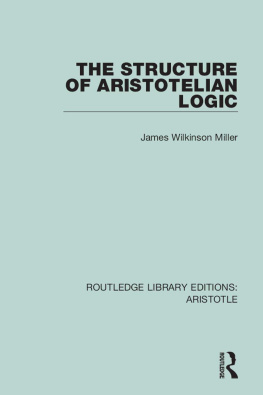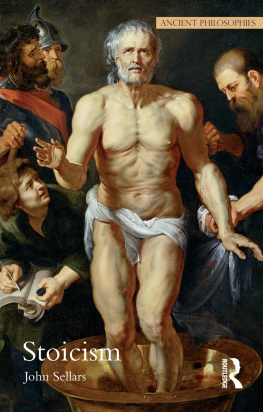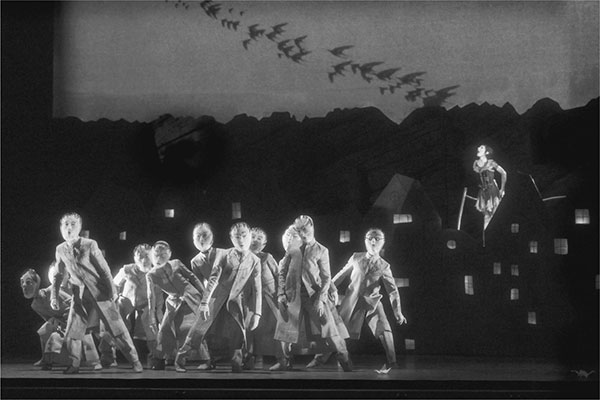Acknowledgements
This book is a revised version of my doctoral thesis. It began under the supervision of Michael Frede who was an awe-inspiring model, not only for his own students, but for anyone studying ancient philosophy. I was lucky enough to be his last student. His tragic death devolved onto me the sense of a responsibility, an officium as Cicero would say, to carry out the unfinished work begun under his guidance. The work continued thanks to Jonathan Barnes, who was more than generous in taking over the role of supervisor. I was privileged to profit from his unlimited knowledge and his idiosyncratic combination of kindness and sharpness of mind.
I received probing and helpful questions and comments from my doctoral examiners Benjamin Morison and Tobias Reinhardt, whose support and encouragement have been invaluable. Susanne Bobzien ran an Ockhams razor through the first version of the manuscript. I cannot thank her enough for that initial reading, to which much of the present book is an attempt to respond.
Discussions on various parts and ideas in the book with Rick Benitez, Charles Brittain, Paolo Fait, Jean-Baptiste Gourinat, Vanessa de Harven, and Christopher Shields have helped me greatly in clarifying them. The erudition and enduring friendship of my first teacher of ancient philosophy, Carlos Levy, have been priceless, as also the many joyous and inspiring encounters with Laura Anstee, Philip Bullock, Damien Caluori, Anna Corrias, Stefano Evangelista, Luke Fischer, Veronique Fischer, Stephen Gaukroger, Daniela Helbig, Patrick Jane, Erasmus Mayr, Charlotte Murgier, Dalia Nassar, Nick Owen, Henry Power, Christopher Tietjens, Emi Takeshi Tull, Anna Tropia, Anik Waldow, Pippa Wildwood, and Fosca Mariani Zini. Last but not least, I could not have done anything without the constant support of my beloved family.
Contents
This book is about the introduction of lekta by the Stoics into their systematic account of reality, as real items in ontology. This affirmation alone is liable to raise a few eyebrows: in some, because they will have never heard of lekta, in others, because this is not quite consonant with how lekta are often presented. In many, or most, studies of lekta, or in which lekta are discussed, they are considered not as items belonging to the account of reality, but rather, as belonging to the more restricted context of the production of meaningful speech. Accordingly lekta are often discussed as part of an examination of a Stoic theory of meaning, and as an original component in a burgeoning philosophy of language. In this respect, the Greek term is often translated as sayable in English, in what is intended to be a calque from the Greek. The Greek term lekton is derived from the Greek verb legein, to say. It is in fact the form of the Greek verbal adjective, which has connotations of both passivity and modality, both captured by the English sayable: it is what is said, or can be said, under certain conditions. In one important source-text we are told: we get things said, which are in fact lekta. These are contrasted, in the very same passage, with sounds which we utter, but emphatically do not say. Lekta are thus what we get said when we utter utterances. But, it follows, not any kind of utterance, only the utterances which get a lekton saidthat is the condition. Lekta are thus sayables, the sort of things which get said, and can only get said by uttering certain kinds of expressions, whose characteristics are yet to be determined.
Alongside this role in language, however, a number of concurring texts report that lekta subsist in correspondence with rational impressions. The context of discussion in these latter texts is even further removed from questions about language or mental operations, and suggests that lekta are items in ontology and physics. The effect of a cause, whatever it may be, has been caused to be or to happen, and is thereby proved to be a real thing, whose origin is parsed in causal terms; it therefore has some sort of ontological status, and as such deserves to be counted amongst the constituents of reality.
Such a variety of contexts of discussion calls into question the traditional first association of lekta with language. The major claim of this book is precisely this, that lekta are not linguistic items, but items with an ontological status, which language can express. Their relation to language is the relation language has to reality, or rather the relation reality has with language, namely that reality has a structure, which language is capable of grasping and expressing. Lekta are part of the complex configurations which make up this structure. It is one feature of these configurations that they are what language expresses. These configurations are thus what is said, or what there is to say, and are available to language; but they are not determined by language. The world is there to be said. This leads to envisaging the role of language as instrumental in accessing its content, rather than productive of it. For if

